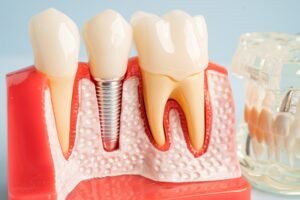Choosing the right toothbrush for your child is a crucial step in fostering excellent oral hygiene habits from a young age. As pediatric dentists at Little Smiles of Beverly Hills, we understand the importance of making brushing an effective and enjoyable experience for your little ones. Here’s our comprehensive guide to selecting the best toothbrush and establishing a successful brushing routine, offering a clear pediatric dentist toothbrush recommendation for every stage of your child’s dental development.
Consistency is Key in Our Toothbrush Recommendation
The “best” toothbrush for your child is ultimately the one they will consistently use. Whether it’s a manual or electric toothbrush, the key is to find one that your child is comfortable with and motivated to use daily. If your child has sensory sensitivities, their preference between manual and electric options should be a primary consideration. This aligns with our core pediatric dentist toothbrush recommendation: prioritize acceptance and regular use of the chosen toothbrush.
Essential Features of a Recommended Pediatric Toothbrush
Regardless of the type of toothbrush, always prioritize soft bristles. Soft bristles are gentle on delicate gums and protect tooth enamel, preventing irritation and potential damage. Additionally, ensure the toothbrush head is appropriately sized for your child’s mouth, allowing for easy maneuverability and effective cleaning of all tooth surfaces. This is a fundamental dental care principle that every pediatric dentist emphasizes.
Age-Appropriate Toothbrush Care from a Dentist
- Before Teething: Even before the first tooth emerges, it’s beneficial to gently wipe your baby’s gums with a 2×2 gauze after feedings. This helps to remove milk residue and introduces a cleaning routine for future dental health.
- During Teething: Once teething begins, a soft silicone brush, such as the Banana Silicone toothbrush, can be an excellent option. Its design is often appealing to infants and helps to gently massage their gums while they learn to tolerate a toothbrush in their mouth. This early introduction is a key pediatric dentist toothbrush recommendation.
Manual vs. Electric Toothbrush: Making the Right Pediatric Dentist Toothbrush Recommendation
Both manual and electric toothbrushes can be effective in cleaning teeth, provided they are used correctly.
- Manual Toothbrushes: These are widely available and can be a good starting point. Look for child-friendly designs and ergonomic handles that are easy for small hands to grip.
- Electric Toothbrushes: Many electric toothbrushes offer features that can make brushing more engaging and effective for children. These often include:
- Built-in Timers: Ensuring your child brushes for the recommended two minutes.
- Smaller Brush Heads: Designed to fit comfortably in a child’s mouth.
- Fun Designs and Characters: To increase appeal and motivation for regular dental hygiene.
To help you decide, here’s a quick comparison incorporating our pediatric dentist toothbrush recommendation principles:
| Feature/Consideration | Manual Toothbrush (Kids) | Electric Toothbrush (Kids) |
| Effectiveness | Effective with proper technique | Often more effective at plaque removal due to vibrations/rotations; good for developing brushers and promoting better dental health |
| Engagement | Can be basic; relies on parent/child motivation | Often comes with timers, apps, characters, and music to increase engagement with the toothbrush |
| Ease of Use | Requires more precise technique from child/parent | Does much of the work; easier for children with limited dexterity |
| Cost | Generally less expensive | Higher initial cost; replacement heads needed |
| Portability | Very portable | Can be less portable; requires charging/batteries |
Our Top Electric Toothbrush Recommendations from a Pediatric Dentist
Based on their features and effectiveness, we often recommend the following electric toothbrushes for children as part of our pediatric dentist toothbrush recommendation:
- Philips Sonicare for Kids: Known for its sonic technology and interactive app that helps kids brush better.
- Oral-B Kids Electric Toothbrush: Often featuring popular characters, these toothbrushes are designed for thorough cleaning with oscillating-rotating technology.
- Colgate Hum Kids Smart Battery Powered Toothbrush: This toothbrush connects to an app that guides kids through brushing and helps track their progress.
- Quip Kids Electric Toothbrush: A sleek and simple design with a built-in timer, making it easy to maintain good habits with this toothbrush.
Making Brushing Fun and Effective: A Pediatric Dentist’s Approach
To encourage consistent and effective brushing habits:
- Make it Fun: Let your child choose a toothbrush with a design or character they love. Play their favorite song or a fun brushing video during the two minutes.
- Establish a Routine: Brush at the same times every day (e.g., after breakfast and before bed) to create a predictable habit. This is a common pediatric dentist toothbrush recommendation for consistency.
- Lead by Example: Brush your teeth alongside your child. Children often learn by imitating their parents.
- Use a Timer: Ensure they brush for the full two minutes, either with a built-in timer on an electric brush or a simple hourglass timer.
Choosing the Right Toothbrush by Age Group: Our Pediatric Recommendation
The ideal toothbrush evolves as your child grows and develops new teeth. Here’s a general guide for optimal dental care, informed by our pediatric dentist toothbrush recommendation:
| Age Group | Recommended Toothbrush Type | Key Features to Look For |
| 0-6 Months | Gauze or Finger Brush | Soft, gentle material; for gum cleaning before teeth emerge |
| 6-12 Months | Silicone Finger Brush/Baby Toothbrush | Soft silicone, small head, easy for parents to use |
| 12-24 Months | Small Manual Toothbrush | Extra-soft bristles, small head, large easy-grip handle for parent |
| 2-5 Years | Child-Sized Manual or Electric Toothbrush | Soft bristles, small head, chunky handle for child’s grip, fun designs/characters |
| 6-8 Years | Child-Sized Manual or Electric Toothbrush | Soft bristles, smaller adult-sized head, potentially power features, ergonomic handle for child |
| 9+ Years (Pre-teen/Teen) | Manual or Adult Electric Toothbrush | Soft bristles, comfortable grip, can transition to adult brushes as permanent teeth emerge |
Pediatric Dentist Answers Your Top Toothbrush Questions
Here are some common questions parents have about their child’s oral hygiene from a trusted dentist perspective, emphasizing our pediatric dentist toothbrush recommendation:
Q1: When should I start brushing my baby’s teeth?
You should start cleaning your baby’s gums even before teeth emerge, using a soft, damp cloth or gauze after feedings. Once the first tooth appears, typically around 6 months, begin brushing twice a day with a soft baby toothbrush and a tiny smear of fluoride toothpaste (rice-grain size).
Children should brush their teeth twice a day, every day, for two minutes each time. It’s best to brush in the morning after breakfast and again before bedtime.
For most children, we recommend using fluoride toothpaste. Fluoride helps strengthen tooth enamel and prevent cavities. Always look for toothpastes approved by the American Dental Association (ADA) or equivalent dental organizations.
For children under 3, use a tiny smear of fluoride toothpaste, about the size of a grain of rice. For children aged 3 to 6, a pea-sized amount is sufficient. Teach your child to spit out the toothpaste after brushing, but don’t rinse with water immediately, as this washes away the fluoride.
You should replace your child’s toothbrush (or electric toothbrush head) every 3-4 months or sooner if the bristles are frayed or splayed. Frayed bristles are less effective at cleaning and can harbor bacteria.
Try to make brushing fun! Let them pick their own toothbrush, use a fun toothpaste flavor, play their favorite song for two minutes while they brush, or make it a family activity where everyone brushes together. Reward charts can also be motivating. Consistency and patience are key for good dental habits.
Both manual and electric toothbrushes can clean effectively when used properly. However, electric toothbrushes often have features like timers and oscillating heads that can make brushing easier and more engaging for children, potentially leading to more thorough cleaning, especially for kids who struggle with manual dexterity.
Swallowing a tiny amount of fluoride toothpaste occasionally is generally not harmful, which is why we recommend small, age-appropriate amounts. However, consistently swallowing large amounts of fluoride toothpaste over time can lead to fluorosis, a condition that can cause discoloration of tooth enamel. Supervise your child’s brushing to ensure they spit out the toothpaste.
You should start flossing your child’s teeth as soon as two teeth touch each other, typically around ages 2-4. Daily flossing helps remove plaque and food particles from between teeth where a toothbrush can’t reach.
If your child complains of sensitive gums or teeth, first ensure they are using a toothbrush with extra-soft bristles. Sensitivity can sometimes be a sign of underlying issues like cavities, gum inflammation, or enamel erosion. It’s best to schedule an appointment with us at Little Smiles of Beverly Hills for a thorough examination to determine the cause and recommend appropriate care. This is a common concern for any pediatric dentistry practice in Beverly Hills. Learn more about our services here.
Partnering for Your Child’s Brightest Smile: A Pediatric Dental Commitment
Choosing the right toothbrush and establishing effective brushing habits are foundational steps in your child’s dental health journey. At Little Smiles of Beverly Hills, our primary goal is to empower parents with the knowledge and tools needed to prevent common issues and ensure bright, healthy smiles for years to come. Remember, consistent daily brushing with an appropriate toothbrush, coupled with regular visits to your pediatric dentist, forms the cornerstone of excellent oral hygiene. We’re here to support you every step of the way! Contact us today to schedule your child’s next dental check-up.



